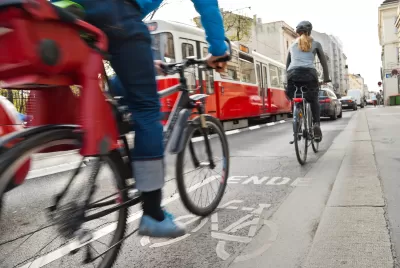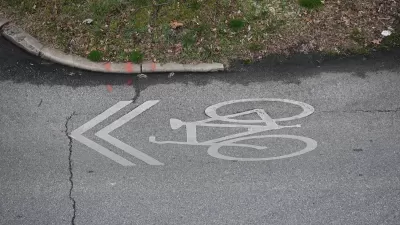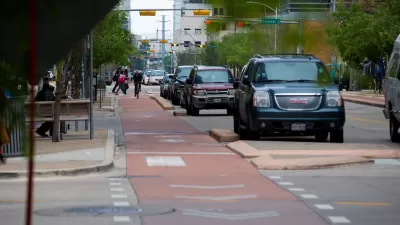Higher cycling rates are associated with significantly lower traffic deaths.

A new study reveals that small and mid-sized cities with higher rates of bike commuting and bike-friendly infrastructure have fewer traffic fatalities, reports Ron Johnson on Momentum.
“The study dives deep into the factors behind this safety paradox, and the conclusions pointed at the importance of cyclists on city streets,” Johnson explains. Pedestrian deaths in cities with low cycling rates were 193.8 percent higher than in their counterpart cities.”The study also noted that in most cases there were not enough bicyclist fatalities to be statistically relevant, but there were enough pedestrian fatalities.”
According to the researchers, “Low density neighbourhoods and cities with wide roads will continue to attract more car users and make it difficult to create a shift in mode that will keep all road users safe, the study suggests. We need density, compact neighbourhoods, and narrow roads.”
FULL STORY: Study shows bicycle-friendly cities are safer for all road users even drivers

Alabama: Trump Terminates Settlements for Black Communities Harmed By Raw Sewage
Trump deemed the landmark civil rights agreement “illegal DEI and environmental justice policy.”

Planetizen Federal Action Tracker
A weekly monitor of how Trump’s orders and actions are impacting planners and planning in America.

The 120 Year Old Tiny Home Villages That Sheltered San Francisco’s Earthquake Refugees
More than a century ago, San Francisco mobilized to house thousands of residents displaced by the 1906 earthquake. Could their strategy offer a model for the present?

LA’s Tree Emergency Goes Beyond Vandalism
After a vandal destroyed dozens of downtown LA trees, Mayor Karen Bass vowed to replace them. Days later, she slashed the city’s tree budget.

Sacramento Leads Nation With Bus-Mounted Bike Lane Enforcement Cameras
The city is the first to use its bus-mounted traffic enforcement system to cite drivers who park or drive in bike lanes.

Seattle Voters Approve Social Housing Referendum
Voters approved a corporate tax to fund the city’s housing authority despite an opposition campaign funded by Amazon and Microsoft.
Urban Design for Planners 1: Software Tools
This six-course series explores essential urban design concepts using open source software and equips planners with the tools they need to participate fully in the urban design process.
Planning for Universal Design
Learn the tools for implementing Universal Design in planning regulations.
Ada County Highway District
Clanton & Associates, Inc.
Jessamine County Fiscal Court
Institute for Housing and Urban Development Studies (IHS)
City of Grandview
Harvard GSD Executive Education
Toledo-Lucas County Plan Commissions
Salt Lake City
NYU Wagner Graduate School of Public Service





























